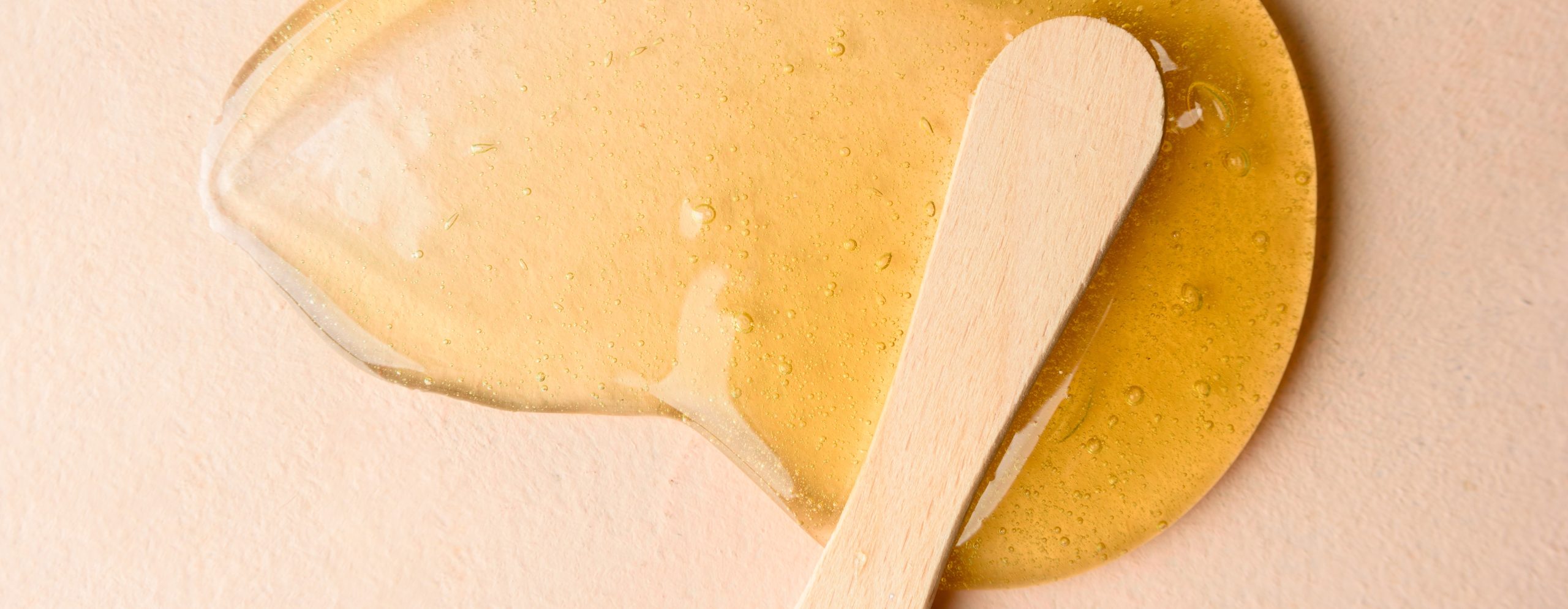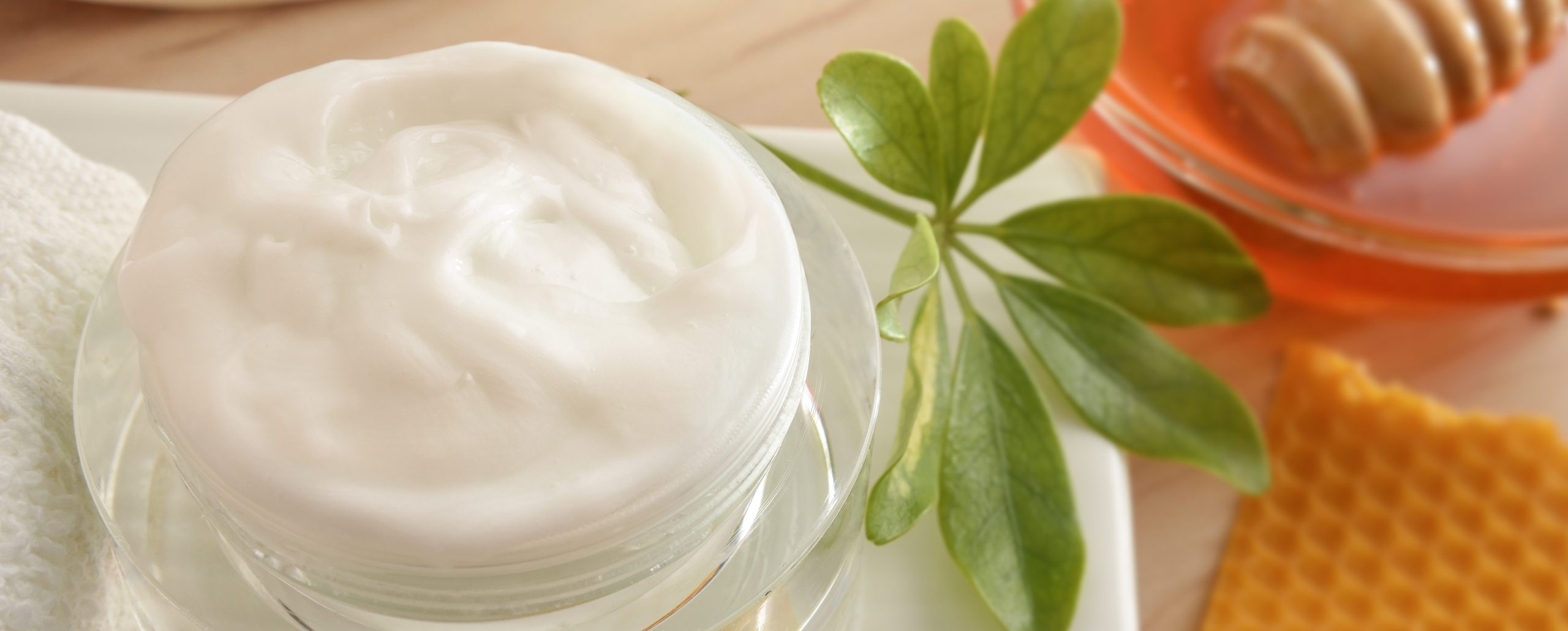FLAVOXALE®: OUR HIGH-QUALITY PROPOLIS FOR PERSONAL CARE
From Disproquima, we want to introduce Flavoxale®, a unique ingredient derived from the combination of an exclusive Propolis Extract (propolis M.E.D.), Manuka Honey, and Manuka Essential Oil.
INCI Name: Propolis, Manuka Honey, Manuka Oil, Arabic Gum, and Sucrose.
– It is made by Dynamic Multi Extraction technology (M.E.D.), which maintains the integrity of the polyphenols profile of the natural product throughout all the batches.
– It has a high-quality and quantity of polyphenols (more than 25% of the total composition), which are responsible for the protection from exogenous agents.
– It does not contain any impurity present in Propolis such as pesticides, aflatoxins, heavy metals…
– Its antibacterial, antioxidant, and anti-inflammatory properties have been scientifically proven.
– It provides flexibility for formulation.
– Propolis M.E.D. counts with clinical studies for Oral Care.

THE POWER OF PROPOLIS
Did you know that honey isn’t the only thing that bees make? Bees produce a resinous substance called Propolis from the sap on trees. When they combine the sap with their discharges and beeswax, they create a sticky, greenish-brown product used as a coating to build their hives: Propolis!
Propolis has been used for thousands of years for its medicinal properties. Current studies have confirmed that this purely vegetable, natural, and non-toxic product contains flavonoids and polyphenols with antimicrobial, anti-inflammatory, and antioxidant activity that may be useful for skin care and oral hygiene.

PROPOLIS FOR ORAL HYGIENE
Periodontitis is an oral disease characterized by a loss of connective tissue and alveolar bone, development of periodontal pocket, and related gingival bleeding.
Since it is an extremely widespread oral disease that affects 45-50% of the population (and within this percentage, 10-15% have a severe form), oral care companies should consider this disease when formulating their products.
It is initiated by dental plaque bacteria, although it cannot be only considered a simple bacterial infection since the host’s immune system also determines the loss of periodontal attachment.
Antimicrobials agents and mechanic instrumental therapy have been proposed as effective periodontitis treatment. There are several effective antimicrobials against periodontitis. However, more and more studies are driving toward natural remedies. In this regard, particular attention has been paid to Propolis for its antibacterial, anti-inflammatory, and antioxidant properties.
Many studies have demonstrated the multiple biological activities of Propolis and highlighted its properties in the dental field. An experimental study by C. Salvatori et al. called “Effectiveness of a Standardized Propolis Extract in Non-Surgical Periodontal Therapy” (2021) aimed to demonstrate the effectiveness of Propolis in the non-surgical treatment of periodontitis. The main conclusion of this analysis was that Propolis is safe and can improve periodontal disease treatment in comparison with an antiseptic of proven efficacy, 1% chlorhexidine gel, by reducing:
– The periodontal pocket depth
– The bleeding score
– The development of dental plaque formation and the development of dental pathogens
– The progression of dental caries
– The host’s immune system response
Specifically, Propolis M.E.D. in studies in vivo showed bacterial inhibition activity and high anti-inflammatory activity by reducing the release of TNFalpha pro-inflammatory cytokine.

PROPOLIS FOR SKIN CARE
M.E.D. Propolis ® has also shown many benefits in the skin care field:
– It reduces odor by 61% without leaving stains on clothes, offering a unique opportunity to formulate safe, natural & efficient Deodorants.
– It shows a decrease of 60% in acne lesions. This activity suggests the possibility of using it in other cosmetic fields where the normalization of sebaceous production is crucial such as Scalp Care.
– A skin rash results from the vasodilatation of small vessels and represents the first phase of the inflammatory reaction to chemical and physical substances. The anti-inflammation activity of M.E.D. Propolis provides a soothing action by reducing erythema.
– Water is essential for the skin’s physiological functions and is strictly related to the wellness of the stratum corneum of the epidermis and its barrier effect. M.E.D. Propolis reduces the Transepidermal water loss, enhancing the skin barrier function.
– It has an antipollution activity thanks to its ability to decrease the skin adhesion of the pollution particles, its reduction of acne lesions, its shooting action, and its skin barrier function.

MANUKA HONEY
Empirical evidence has established honey as a treatment for wounds and burns since the earliest times. Several studies have proven its antioxidant, bacteriostatic, anti-inflammatory, and antimicrobial properties and wound and sunburn healing effects. Honey has also been considered particularly suitable for cosmetics, and its regular use is thought to keep the skin juvenile.
Dark-colored honey has been reported to have higher total phenolic contents and, consequently, higher antioxidant capacities. Within monofloral honey, manuka honey derived from the manuka tree Leptospermum scoparium, dark honey, has greatly attracted the attention of the international scientific community for its biological properties, especially for its antimicrobial and antioxidant capacities. The bacteriostatic properties of Manuka honey are associated with the presence of methylglyoxal (M.G.O.). Flavoxale® is also standardized in M.G.O. to ensure the synergic properties of the product matrix.

MANUKA ESSENTIAL OIL
Manuka essential oil is rich in terpenes (primary monoterpenes, sesquiterpenes, methyl cinnamate, and triketones) that can be considered responsible for its activity through activation of several pathways, whose results are the inhibition of inflammation.

REFERENCES
– JM Alvarez-Suarez, M Gasparrini, TY Forbes-Hernández, L Mazzoni & Francesca G. The Composition and Biological Activity of Honey: A Focus on Manuka Honey (2014). Foods, 3, 420-432. Available on: https://doi.org/10.3390/foods3030420
– B Burlando & LCornara. Honey in dermatology and skin care: A review (2013). Journal of Cosmetic Dermatology, 12, 306—313. Available on: https://doi.org/10.1111/jocd.1205
– C Salvatori et al. Effectiveness of a Standardized Propolis Extract in Non-Surgical Periodontal Therapy (2021). J Oral Infect Pathol 1:104. Available on: https://doi.org/10.21203/rs.3.rs-418104/v1
Published by: Disproquima
Our Ingredients,















